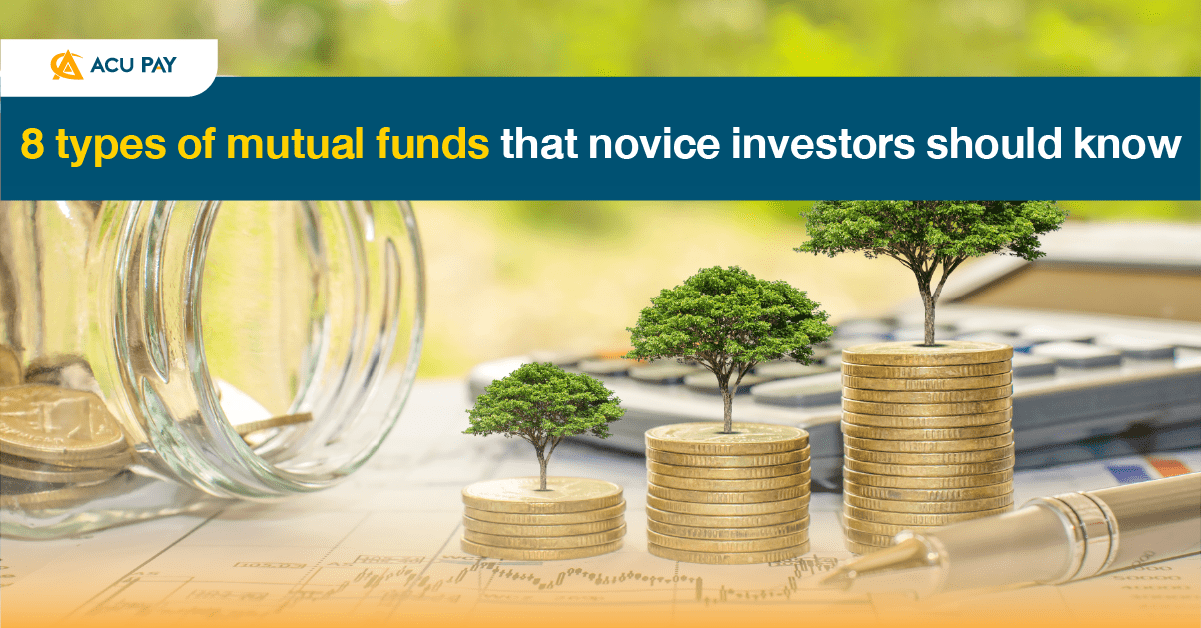

If you do not have time to follow the market trend, have no experience, have a small amount of principal, a mutual fund is one of the interesting options for you to invest. Follow ACu PAY if you would like to know how many types of mutual funds are there so that you can choose the right mutual fund that suits you.
A mutual fund is a fund established to raise funds from many investors that have asset management companies as an administrator and return the proceeds from fundraising to invest in assets under the Fund’s policy to generate more funds and to return the average profits to investors according to their holding units.
The fund invests mainly in deposits, bills, and debt instruments which have an average maturity of up to one year with the lowest risk.
Suitable for who?: It is suitable for those who do not want to take risks or need to rest money but not with the deposit in a savings bank account. The Money Market funds have slightly better returns than bank deposits, with high liquidity, and can be withdrawn the next day. Moreover, it is suitable for those who have little time to invest because of retirement age.
The fund invests mainly in deposits, bills, and debt instruments with an average maturity of less than one year, similar to the first fund group but some foreign investments may be made. As a result, foreign exchange risk is increasing, but normally these types of funds have already been protected against foreign exchange risk.
Suitable for who?: It is suitable for those who invest in mutual funds in the domestic money market, but it may be subject to fluctuation in exchange rates because they are foreign currency markets.
The fund invests mainly in government bonds, such as government bonds or state enterprise bonds, with an average life expectancy of more than one year, making it more volatile than money market funds. It is a short-medium-term investment.
Suitable for who?: It is suitable for those who cannot take much risk and prefer stability, do not expect high returns, and do not have a long time to invest because they are too old.
The fund invests mainly in government and private debt instruments such as government bonds, state enterprise bonds, treasury bills, and private debentures. There are funds invested in both short-term debt instruments (average maturity of up to one year) and long-term debt instruments (average maturity of more than one year).
Suitable for who?: It is suitable for those who expect consistent returns, who are less likely to take risks or want to diversify their investment risk, which can be invested in the short and long term.
It’s a fund that can invest in any assets whether it’s deposits, debt instruments, stocks, or anything else. The proportion of investments must be viewed in the fund’s investment policy.
Suitable for who?: It is suitable for those who want good returns with medium- to high risk and those who do not have time to organize their own portfolios during the volatile market.
It is a fund that focuses on both domestic and international stocks. These funds include SSFs and RMFs that can be tax-deductible.
Suitable for who?: It is suitable for young people with long investment periods, and high returns, who can take high risks, and who like to invest in stocks but have no time to manage them.
These funds focus on stocks but are more specific to industries such as banking and communications, and hospital stocks. However, this type of fund has a higher risk than general equity funds due to their concentrated investments.
Suitable for who?: It’s suitable for people who can take high risk and have a good understanding of the industry.
It is a fund that focuses on alternative investments other than basic assets such as crude oil and gold. This type of fund is highly risky because investment assets may fluctuate in price volatility or may not have liquidity to trade.
Suitable for who?: It is suitable for those who can take high risks, wants to diversify their investments into other assets and have a better understanding of the details involved in the alternative.